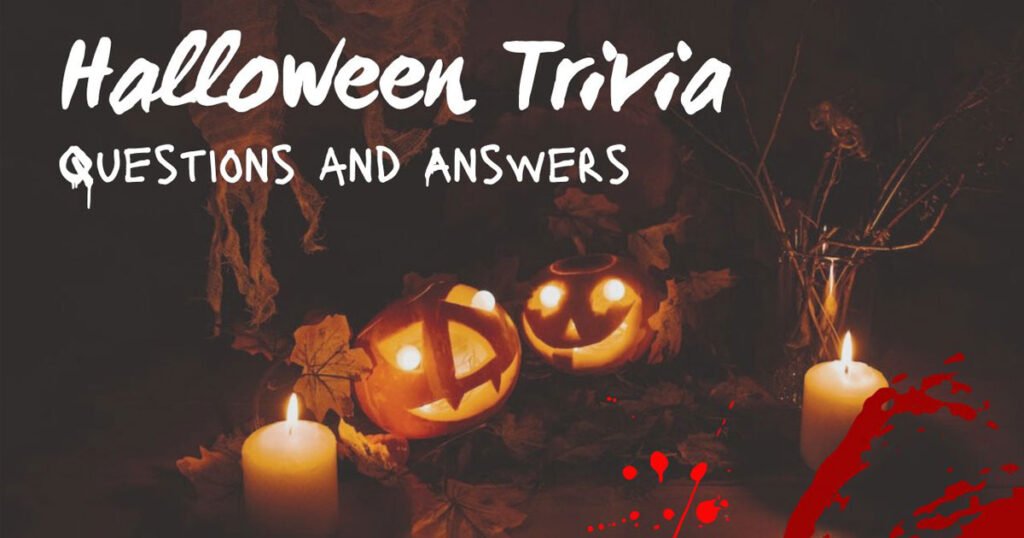Are you ready to test your knowledge with exciting Pharmacy Trivia Questions? Dive into a world of fascinating facts and figures related to the pharmacy profession! Whether you’re a pharmacy student, a professional pharmacist, or just someone with a curious mind, these trivia questions will not only educate you but also entertain you. From historical milestones to modern-day advancements, our collection of Pharmacy Trivia Questions and Answers is designed to engage and challenge participants of all ages.
What Is Pharmacy Trivia?
Pharmacy Trivia Questions offer a fun way to learn about the world of medicines and healthcare. They challenge your knowledge while providing interesting facts. But what exactly is Pharmacy Trivia? This engaging activity involves questions related to pharmaceuticals, medicines, and the healthcare industry. It can be a fun way to test your knowledge or learn something new.
Pharmacy Trivia is a question-and-answer game focused on the field of pharmacy. It covers various topics, including drug names, uses, side effects, and history. It makes learning about medicines engaging and enjoyable.
Types Of Questions In Pharmacy Trivia
Pharmacy Trivia questions can range from easy to challenging. Some common types include:
- Multiple Choice Questions: Choose the correct answer from a list of options.
- True or False Questions: Determine if a statement is true or false.
- Fill in the Blanks: Complete a statement with the correct word or phrase.
Benefits Of Participating In Pharmacy Trivia
Playing Pharmacy Trivia offers several benefits:
- Enhanced Knowledge: Learn new facts about drugs and their uses.
- Improved Memory: Retain information better through repetition.
- Fun Learning: Enjoy the process of gaining knowledge.
Example Pharmacy Trivia Questions
| Question | Answer |
|---|---|
| What is the generic name for Tylenol? | Acetaminophen |
| True or False: Aspirin is an anti-inflammatory drug. | True |
| What vitamin is also known as Ascorbic Acid? | Vitamin C |
101 Pharmacy Trivia Questions And Answers
Here’s a list of 101 Pharmacy Trivia Questions and Answers, categorized for clarity. These questions cover a range of pharmacy-related topics, including general pharmacy knowledge, pharmacology, clinical pharmacy, drug categories, and more.
General Knowledge Pharmacy Trivia Questions
Q: What is the study of how drugs affect the body called?
A: Pharmacology.
Q: What is the active ingredient in Tylenol?
A: Acetaminophen.
Q: What does the abbreviation “OTC” stand for?
A: Over-the-counter.
Q: Who is considered the father of modern pharmacy?
A: Galen.
Q: What does “Rx” stand for?
A: Prescription.
Q: What is the main responsibility of a pharmacist?
A: To dispense medications and provide information on proper drug usage.
Q: What is the professional degree required to become a pharmacist in the United States?
A: Doctor of Pharmacy (Pharm.D.).
Q: Which government agency regulates prescription drugs in the United States?
A: The Food and Drug Administration (FDA).
Q: What is compounding in pharmacy?
A: The process of creating a custom medication tailored to an individual’s needs.
Q: What does “bioavailability” refer to in pharmacology?
A: The degree and rate at which a drug is absorbed into the bloodstream.
More General Knowledge
Q: What is a generic drug?
A: A medication that has the same active ingredients as a branded drug but may differ in inactive ingredients.
Q: What is the primary use of an antipyretic drug?
A: To reduce fever.
Q: What is the most common route of drug administration?
A: Oral.
Q: What type of medication is insulin?
A: A hormone used to manage diabetes.
Q: What does “enteric-coated” mean in pharmacy?
A: A coating that prevents a tablet from dissolving in the stomach, allowing it to dissolve in the intestines.
Q: What is the use of a placebo in clinical trials?
A: To act as a control to compare the effects of the actual drug.
Q: What does “NSAID” stand for?
A: Nonsteroidal Anti-Inflammatory Drug.
Q: What is a diuretic used for?
A: To increase urine production and reduce fluid retention.
Q: Which vitamin is essential for blood clotting?
A: Vitamin K.
Q: What is a formulary?
A: A list of prescription drugs covered by a health insurance plan.
Drug Categories
Q: What type of drug is used to treat bacterial infections?
A: Antibiotic.
Q: What is the primary function of a beta-blocker?
A: To lower blood pressure.
Q: What kind of drug is Aspirin?
A: An analgesic and anti-inflammatory.
Q: What is a bronchodilator used for?
A: To relax muscles in the lungs and expand airways.
Q: What is an antihistamine used to treat?
A: Allergies.
Q: Which drug is a common statin used to lower cholesterol?
A: Atorvastatin.
Q: What class of drug is omeprazole?
A: Proton Pump Inhibitor (PPI).
Q: What is a common anticoagulant medication?
A: Warfarin.
Q: What are opioids primarily used for?
A: Pain relief.
Q: What kind of drug is furosemide?
A: A loop diuretic.
More Drug Pharmacy Trivia Questions
Q: What is a common use for corticosteroids?
A: To reduce inflammation.
Q: What is a selective serotonin reuptake inhibitor (SSRI) used for?
A: Treating depression.
Q: What is an example of a calcium channel blocker?
A: Amlodipine.
Q: What type of medication is metformin?
A: An antidiabetic drug.
Q: What is the main use of a mucolytic?
A: To break down mucus.
Q: Which drug is commonly used as an antiemetic?
A: Ondansetron.
Q: What kind of drug is used to treat fungal infections?
A: Antifungal.
Q: What type of drug is albuterol?
A: A bronchodilator.
Q: What kind of drug is losartan?
A: An angiotensin II receptor blocker (ARB).
Q: What is a laxative used for?
A: To relieve constipation.
Clinical Pharmacy Trivia Questions
Q: What does “therapeutic index” measure?
A: The safety margin of a drug.
Q: What is polypharmacy?
A: The simultaneous use of multiple medications by a patient.
Q: What is the term for the study of drug movement through the body?
A: Pharmacokinetics.
Q: What is a drug interaction?
A: When one drug affects the activity of another drug taken simultaneously.
Q: What does “half-life” refer to in pharmacology?
A: The time it takes for the concentration of a drug to reduce by half in the body.
Q: What does “adverse drug reaction” mean?
A: A harmful or unintended reaction to a medication.
Q: What is the main role of a clinical pharmacist?
A: To optimize medication therapy for better health outcomes.
Q: What is a black box warning?
A: The strongest warning issued by the FDA for medications with serious risks.
Q: What does “compliance” mean in medication use?
A: Following the prescribed treatment plan correctly.
Q: What is the “first-pass effect”?
A: The metabolism of a drug before it reaches systemic circulation.
More Clinical Pharmacy
Q: What is a contraindication?
A: A condition or factor that makes a particular drug unsafe for a patient.
Q: What is the function of a pharmacist during medication counseling?
A: To educate patients about their medications.
Q: What is “therapeutic drug monitoring”?
A: The process of measuring drug levels in the blood to maintain effective dosage.
Q: What is an orphan drug?
A: A drug developed to treat a rare disease.
Q: What is pharmacodynamics?
A: The study of what drugs do to the body.
Q: What is meant by “off-label use” of a drug?
A: Using a drug for an unapproved indication.
Q: What does the term “dose-response relationship” mean?
A: The relationship between the dose of a drug and its therapeutic effect.
Q: What is a “loading dose”?
A: A higher initial dose of a drug to quickly reach therapeutic levels.
Q: What is a common side effect of opioid medications?
A: Constipation.
Q: What is the purpose of a medication reconciliation?
A: To avoid medication errors by ensuring accurate and complete drug information.
Pharmacology
Q: What does “agonist” mean in pharmacology?
A: A substance that activates a receptor to produce a response.
Q: What does “antagonist” mean in pharmacology?
A: A substance that blocks or dampens a biological response by binding to a receptor.
Q: What is the mechanism of action of ACE inhibitors?
A: They inhibit the angiotensin-converting enzyme, lowering blood pressure.
Q: What type of drug is heparin?
A: An anticoagulant.
Q: Which neurotransmitter is primarily affected by SSRIs?
A: Serotonin.
Q: What is the antidote for acetaminophen overdose?
A: N-acetylcysteine.
Q: What is the therapeutic class of prednisone?
A: Corticosteroid.
Q: What is the main use of digoxin?
A: To treat heart failure and atrial fibrillation.
Q: What does the term “synergistic effect” mean?
A: When two drugs work together to create a stronger effect.
Q: What is the difference between a drug’s generic name and brand name?
A: The generic name is the chemical name of the drug, while the brand name is the marketed name.
More Pharmacology
Q: What is the main action of an antihypertensive drug?
A: To lower blood pressure.
Q: Which type of drug is used to neutralize stomach acid?
A: Antacid.
Q: What does “teratogenic” mean in pharmacology?
A: A drug that can cause birth defects.
Q: What kind of drug is levothyroxine?
A: A thyroid hormone replacement.
Q: What are benzodiazepines primarily used for?
A: Treating anxiety and insomnia.
Q: What is a prodrug?
A: A medication that is metabolized into an active form within the body.
Q: What is the primary mechanism of action of proton pump inhibitors (PPIs)?
A: They block the enzyme in the stomach lining that produces acid.
Q: What is the antidote for opioid overdose?
A: Naloxone.
Q: What is the purpose of a beta-agonist medication?
A: To stimulate beta receptors, usually to treat asthma.
Q: What is the mechanism of action for local anesthetics like lidocaine?
A: They block sodium channels to prevent nerve impulses.
Drug Safety & Regulations
Q: What is pharmacovigilance?
A: The science of monitoring the safety of medicines after they have been released.
Q: What is the DEA’s role in pharmacy?
A: To regulate the legal use and distribution of controlled substances.
Q: What is a Schedule I drug?
A: A drug with no accepted medical use and a high potential for abuse.
Q: What is required on a prescription label?
A: Patient’s name, drug name, dosage, instructions, prescriber’s name, and pharmacy information.
Q: What is a controlled substance?
A: A drug that is regulated by law due to its potential for abuse.
Q: What is the Poison Prevention Packaging Act?
A: A law that requires certain medications to be packaged in child-resistant containers.
Q: What is the National Drug Code (NDC)?
A: A unique identifier for drugs in the United States.
Q: What is the role of the United States Pharmacopeia (USP)?
A: To set standards for drug quality, strength, and purity.
Q: What is the purpose of the Orange Book?
A: To list FDA-approved drugs and their therapeutic equivalents.
Q: What is an Investigational New Drug (IND) application?
A: A request to the FDA to start clinical trials for a new drug.
More Drug Safety & Regulations
Q: What does “GRAS” stand for in drug safety?
A: Generally Recognized As Safe.
Q: What is a “boxed warning” on a medication?
A: A strong warning about severe side effects, also called a “black box warning.”
Q: What is the purpose of the REMS program?
A: To ensure the safe use of certain medications with serious risks.
Q: What is an “adulterated” drug?
A: A drug that fails to meet quality or safety standards.
Q: What is a Phase III clinical trial?
A: A large-scale trial to test drug effectiveness and monitor side effects before approval.
Q: What does “compounding pharmacy” specialize in?
A: Creating customized medications for patients.
Q: What does the term “off-label use” refer to?
A: Using a medication for an indication not officially approved by the FDA.
Q: What is the difference between a biologic and a small-molecule drug?
A: A biologic is made from living organisms, while a small-molecule drug is chemically synthesized.
Q: What is a biosimilar?
A: A drug that is very similar to an FDA-approved biologic, with no significant differences in safety or efficacy.
Q: What is the difference between “prescription” and “over-the-counter” drugs?
A: Prescription drugs require a doctor’s authorization, while OTC drugs can be purchased without one.
Q: What is “clinical trial blinding”?
A: Keeping study participants and researchers unaware of who receives the treatment or placebo to eliminate bias.
These questions cover a broad spectrum of pharmacy knowledge and are suitable for educational purposes, quizzes, or professional development in the field of pharmacy.
History Of Pharmacy
Pharmacy trivia questions can be exciting and informative. Let’s dive into the history of pharmacy to understand how it has evolved over the centuries. From ancient practices to modern developments, the field of pharmacy has a rich and fascinating past.
Ancient Practices
Pharmacy dates back thousands of years. Ancient civilizations had unique methods for treating ailments. In ancient Egypt, pharmacists were known as “pastophor” and prepared remedies using herbs and minerals. The Ebers Papyrus, a medical document from 1500 BCE, lists hundreds of remedies.
In ancient Greece, Hippocrates and his followers classified diseases and their treatments. They used natural substances like honey, vinegar, and herbs. Hippocrates’ work laid the foundation for modern medicine.
Ancient China also had advanced pharmacy practices. The Shen Nong Ben Cao Jing, written around 200 CE, is one of the earliest pharmacopeias. It describes hundreds of medicinal plants and their uses. Chinese pharmacists used herbs to balance the body’s energy.
- Egypt: Pastophor, Ebers Papyrus
- Greece: Hippocrates, natural substances
- China: Shen Nong Ben Cao Jing, herbal remedies
These ancient practices formed the base of today’s pharmaceutical knowledge.
Modern Developments
Pharmacy has seen significant advances in recent centuries. The 19th century marked the beginning of modern pharmacy. In 1820, the first U.S. Pharmacopeia was published, standardizing drug formulations.
In the 20th century, antibiotics revolutionized medicine. Penicillin, discovered by Alexander Fleming in 1928, saved countless lives. This era also saw the development of vaccines, which prevented many diseases.
Today’s pharmacies use technology to enhance patient care. Electronic health records (EHRs) and automated dispensing systems improve accuracy and efficiency. Pharmacists now play a crucial role in health care teams.
| Century | Development |
|---|---|
| 19th Century | First U.S. Pharmacopeia |
| 20th Century | Antibiotics, Vaccines |
| 21st Century | Technology, EHRs |
The history of pharmacy shows remarkable progress from ancient herbal remedies to modern technological advancements.

Credit: www.youtube.com
Frequently Asked Questions
What Is The Role Of A Pharmacist?
Pharmacists dispense medications and offer health advice. They ensure prescriptions are accurate and safe for patients. They also educate on medication use and side effects.
How Do Pharmacists Ensure Medication Safety?
Pharmacists review prescriptions for accuracy and potential interactions. They verify dosages and educate patients on proper use. This helps prevent harmful side effects.
What Qualifications Do Pharmacists Need?
Pharmacists must earn a Doctor of Pharmacy (Pharm. D. ) Degree. They also need to pass licensing exams. Continuing education is often required to maintain their license.
Why Is Patient Counseling Important In Pharmacy?
Patient counseling ensures proper medication use and adherence. It helps prevent errors and improves health outcomes. Pharmacists provide essential information and support.
Conclusion
Pharmacy trivia questions are a fun way to test your knowledge. They help you learn while having fun. Challenge your friends and colleagues with these questions. Keep exploring and expanding your pharmacy knowledge. Stay curious and engaged in the world of pharmacy.
Happy quizzing!



